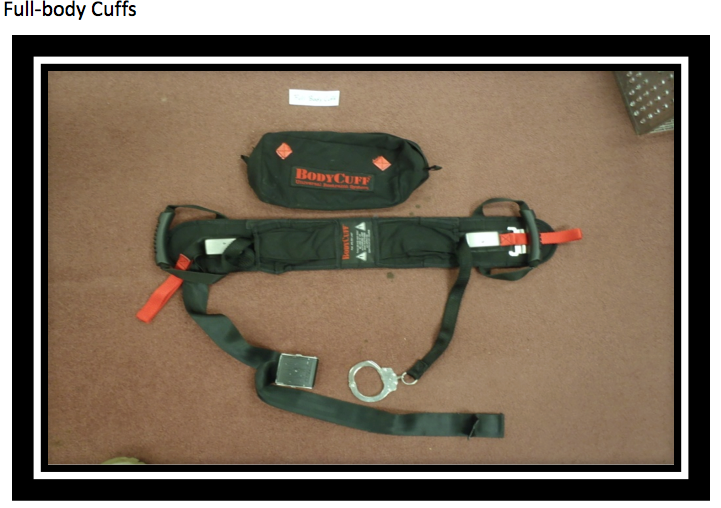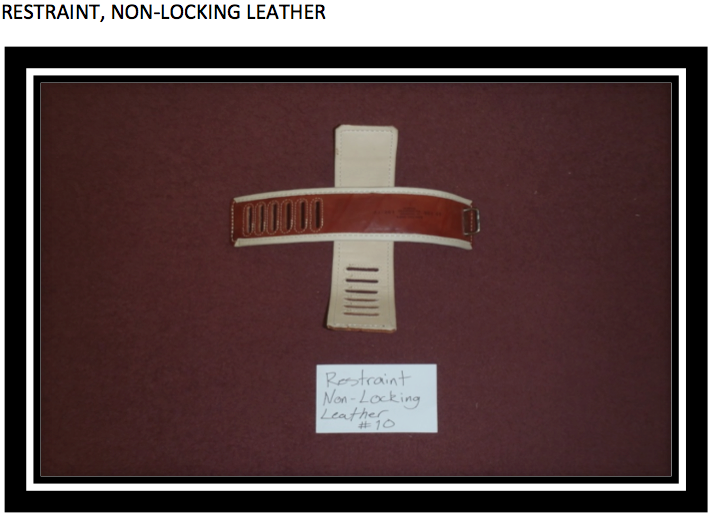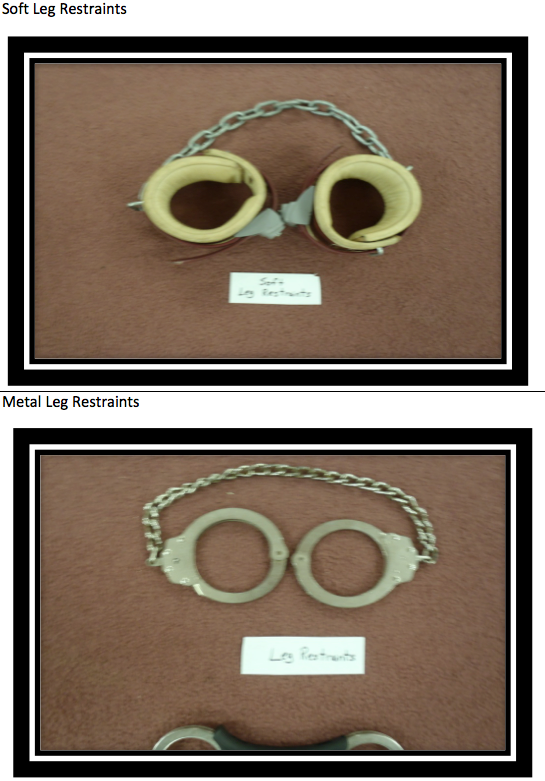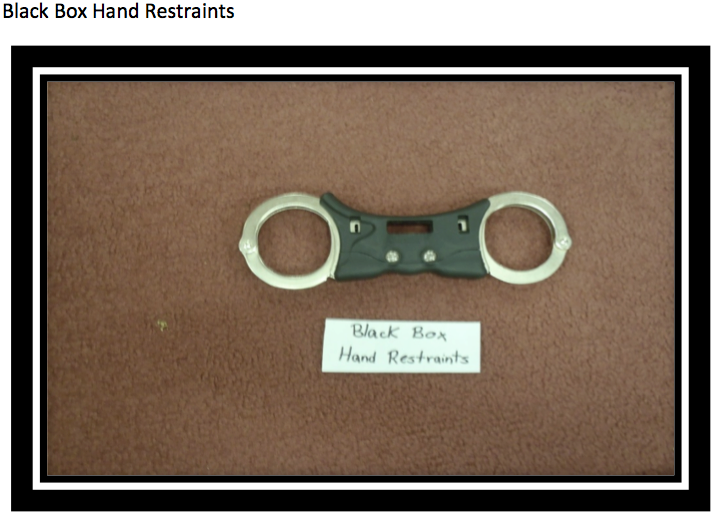Twelve years ago this week, the U.S. government created the detention facility at Guantánamo Bay to house those suspected in the 9/11 attacks and other terrorist activities.
After years of hunger strikes, congressional hearings, military commissions and—from some quarters—opprobrium, the Pentagon is still shopping for equipment to keep them in line.
On Tuesday, the Army said it’s looking to sign an “unrestricted” blanket purchasing agreement that will let it buy restraints for the 158 detainees still at Guantánamo, as well as protective gear for the U.S. troops guarding them. “The number one priority at Joint Task Force Guantánamo is the safety and welfare of the guard force and the detainees,” said Navy Commander John Filostrat, a Guantánamo spokesman. “The equipment will help ensure their safety and welfare.”
The Army is seeking 53 categories of items—38 for the guards and 15 for the detainees. Interestingly, the solicitation includes a photograph for each detainee-restraint item. The protective guard items get the standard, written description (military officials could not immediately explain the discrepancy). Some detainees are restrained whenever they are moved; others have been force-fed to thwart hunger strikes in so-called “restraint chairs.”
The gear offers a peek at the grim existence at Gitmo—for the guards, as well as the detainees. The photographs look like something someone might post on eBay if they were seeking to sell it (be careful looking for such items; a Google search for some of them can yield S&M equipment websites). But they present a starker look at what has been happening at Guantánamo than words ever could:
(Yes, the belly-chain photos are identical, despite their purported different girths.)
Among the 38 protective items sought for the guards are riot helmets (small, medium, large and extra large, with “polycarbonate clear face shield”), riot chest protectors (with “protective neck roll, shoulder pads with hard-shell plastic plates, and padding,” also in four sizes), as well as a “riot gear storage and transportation bag.” They also want “riot control/response gloves with steel shot, double-layered goatskin palm” in S, M. L and XL, packed with several ounces of steel pellets to deter detainees, along with “hard-knuckle Riot Control Gloves, all leather.” They’re seeking “spike protective vests” and 2-ft.-by-4-ft. “heavy duty riot shields.” Given the human waste that has been regularly tossed at guards, it comes as no surprise they’re looking to buy disposable coveralls, gloves and cases of 200 disposable face shields to protect them from what guards call “splashing.”
A total of 779 men have served time at Guantánamo since Jan. 11, 2002. Holding each of them at Gitmo, sovereign U.S. territory on the southeast coast of Cuba, costs the U.S. government some $2.7 million annually (20% more than the $2.1 million each of the 38,000 U.S. troops in Afghanistan is costing American taxpayers this year, according to the nonpartisan Center for Strategic and Budgetary Assessments).
President Obama pledged to close Guantánamo when he was campaigning for the Oval Office in 2008. But he has been thwarted in shuttering the place because of congressional opposition to holding any detainees inside the U.S. proper, and the reluctance of foreign nations to imprison their own citizens now held at Guantánamo. Then-Defense Secretary Robert Gates says in Duty, his new book, that he advocated closing Gitmo when President George W. Bush was still in office.
Michael Lehnert, a retired Marine major general, was the first commander in charge of the detainees 12 years ago. “Even in the earliest days of Guantánamo, I became more and more convinced that many of the detainees should never have been sent in the first place,” he recently wrote in his home state’s Detroit Free Press. “In retrospect, the entire detention and interrogation strategy was wrong. We squandered the goodwill of the world after we were attacked by our actions in Guantánamo, both in terms of detention and torture. Our decision to keep Guantánamo open has helped our enemies because it validates every negative perception of the United States.”
Bids for the Gitmo gear are due by 2 p.m. Valentine’s Day, 2014. The contract is slated to run until Feb. 14, 2019.





